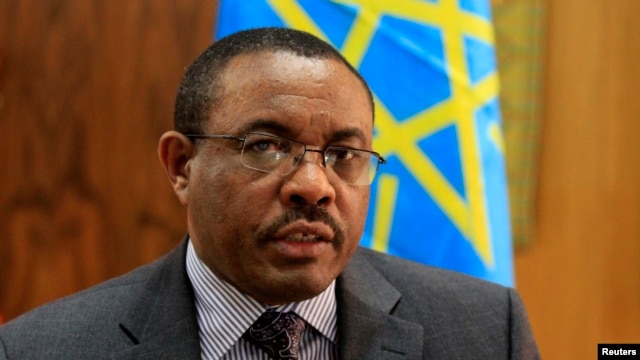
FILE - Ethiopian Prime Minister Hailemariam Desalegn speaks during an interview with Reuters inside his office in the capital Addis Ababa, October 10, 2013.
ADDIS ABABA — Human Rights Watch has released a 70-page report accusing Ethiopia of using torture against political detainees to extract information and confessions. The international rights watchdog is urging the Ethiopian government to stop these alleged practices.
The report focuses on Maekelawi, the main detention center in Ethiopia's capital, Addis Ababa. Researcher and author of the report Laetitia Bader claims unlawful methods are used in the detention center.
“Some of these methods amount to torture or ill treatment, including regular and systematic beatings, slapping and kicking of detainees, particularly during interrogations. Some of the detainees that I spoke to said they were hung, handcuffed from the wall, for hours upon end, while being interrogated and beaten at the same time,” said Bader.
Thirty-five former detainees were interviewed for the report, most of who say they were denied access to their families and legal representation and were often forced to sign statements and confessions.
A former detainee, who doesn’t want to be named, alleges he was beaten while being tied up in the cold. He said the interrogators do not use police skills to conduct their investigations, but force. The interrogators force detainees to speak about the issue they are suspected of and don’t trust what the prisoners say.
The human rights organization believes that the political opposition in the East African country has become increasingly criminalized by an anti-terrorism law, introduced in 2009. Ethiopia’s ruling party has been in power since 1991.
Bader says Human Rights Watch is urging the Ethiopian government to take concrete steps to investigate the allegations of mistreatment, “and hold those responsible, regardless of their rank. At the same time it needs to allow Ethiopian courts to investigate allegations and to put in place measures and to protect detainees from reprisals if they do dare to speak out.”
Ethiopian government officials were not available to comment on the allegations in the Human Rights Watch report.
|
|
